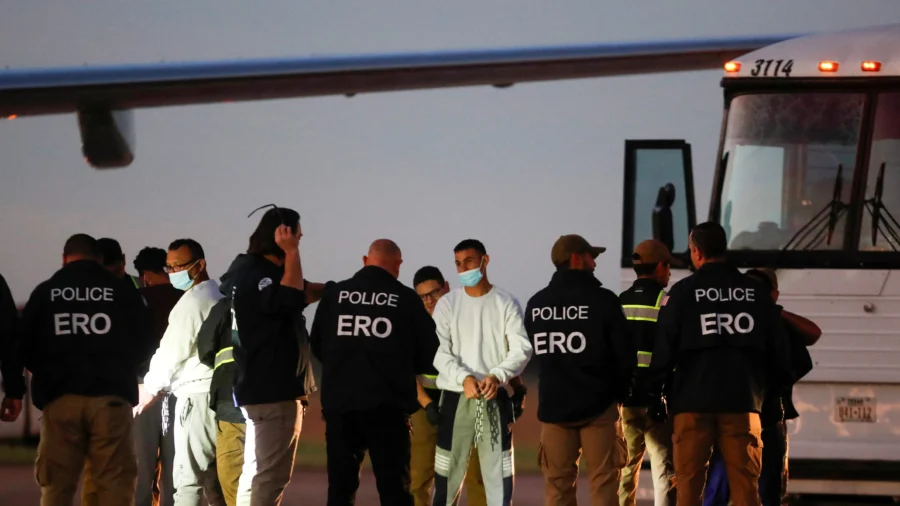Entry Restrictions for Venezuelans: A Deep Dive into Trump’s Executive Order
In a significant move, President Donald Trump announced the suspension of entry into the United States for Venezuelans holding various types of visas, effective from June 9. This decision impacts those with tourist, business, student, and cultural exchange visas, alongside restrictions affecting citizens from 11 other countries. The proclamation, delivered on June 4, highlights growing concerns regarding immigration policy and national security.
Understanding the Visa Categories Affected
The suspension specifically targets several visa categories. The B-1 visa, designed for business purposes, and the B-2 visa, intended for tourism, are both included in this ban. The B-1/B-2 visa combines these two functions, allowing individuals to engage in both business and leisure activities during their stay. Additionally, F, M, and J visas, which are generally allocated to students and cultural exchange participants, are also affected.
Concerns Voiced by the Administration
In his proclamation, Trump underscored serious issues related to Venezuela’s governmental capabilities, asserting that the country “lacks a competent or cooperative central authority for issuing passports or civil documents.” This statement points to a broader narrative about the inability to conduct effective vetting and screening of individuals coming from Venezuela, which the administration views as a risk for national security.
Historical context adds weight to these concerns, as the White House noted that Venezuela has consistently refused to accept its deported citizens. Additionally, Venezuelan citizens have an overstay rate of 9.8 percent according to the Overstay Report, raising further alarm for policymakers about potential risks associated with immigration from the country.
Trump’s Stance on Migration
In a video statement following the announcement, Trump emphasized, “We cannot have open migration from any country where we cannot safely and reliably vet and screen.” His statement reflects the broader objective of the administration to tighten immigration policies, especially from countries considered as risks to national security or those that do not cooperate with the United States.
The Venezuelan Context
Venezuela has been under authoritarian rule since 1999, with Nicolás Maduro succeeding Hugo Chávez after Chávez’s death in 2013. The regime has drawn sharp international criticism for widespread human rights violations, economic collapse, and political repression. These factors contribute to the dire situation in the country, prompting many citizens to seek refuge abroad, and adding complexity to U.S. immigration policy discussions.
Exemptions from the Ban
While the ban is extensive, it does contain exemptions. Legal permanent residents of the U.S., dual nationals, and those holding passports from non-restricted countries will not be impacted by the new restrictions. Moreover, athletes and members of sports teams participating in major sporting events, as sanctioned by the U.S. secretary of state, are also exempt from this order. This allowance underscores the importance placed on international sports and cultural exchange, despite otherwise stringent limitations on migration.
Reporting and Future Assessments
The executive order establishes a framework for future assessments. Within 90 days of the ban’s implementation, and every 180 days thereafter, the secretary of state is required to submit a report to the president. This report will evaluate the current measures and provide recommendations on whether the ban should continue, be modified, or be terminated altogether.
Broader Immigration Policy Landscape
This decision follows the administration’s previous cancellation of Temporary Protected Status (TPS) for Venezuelans, announced earlier in the year. TPS is an immigration status that allows individuals from countries facing unrest or disasters to remain in the U.S. without the threat of deportation. The ending of TPS for Venezuelans adds another layer of complexity to the immigration landscape, particularly for those fleeing the humanitarian crisis in their home country.
On February 1, 2025, Secretary of Homeland Security Kristi Noem announced the termination of the 2023 TPS designation for Venezuelans, which was set to expire on April 7. The legality of this decision is currently under scrutiny, as a Supreme Court ruling upheld Noem’s action following challenges in lower courts.
Current Status of TPS
The initial TPS designation for approximately 250,000 Venezuelans remains active until September 10, 2025. This ongoing status provides some relief for individuals who may face dire circumstances if forced to return to a country in turmoil while debates over immigration policy continue to unfold.
Through these multifaceted layers, the unfolding situation regarding Venezuelan immigration to the U.S. reflects broader concerns about security, humanitarian issues, and international law. The complexities surrounding visa restrictions and the status of Venezuelan nationals highlight the challenges of navigating immigration in today’s geopolitical landscape.


